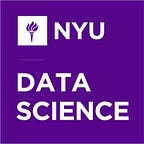5 Minutes with Jennifer Jacquet
Shame, wildlife, and shark diving? As part of this month’s Women in Data Science series, we catch up with Jennifer Jacquet
Jennifer Jacquet is an Assistant Professor of Environmental Studies at NYU and an affiliated faculty member with the Stern School of Business as well as the Center for Data Science. She earned her doctorate at the University of British Columbia (during which she volunteered as a diver in the shark tank at the Vancouver Aquarium!) Her research focuses on large-scale transnational cooperation dilemmas, including climate change, overfishing, and the Internet wildlife trade.
1. One of your recent projects was the Enforcement Gaps Interface (EGI), where you collaborated with Sunandan Chakraborty (a former Moore Sloan Fellow at CDS!) The project, which algorithmically detects the sale of illegally trafficked wildlife, received the Wildlife Crime Tech Challenge Grand Prize in 2016. What are the new developments with EGI?
Sunandan and I are just finishing up connecting the user interface (which will allow enforcement agencies, NGOs, and some people in the private sector) to search the results from the back-end model, which generates a list of potentially illegal wildlife ads found on the open web each week. We also are just wrapping up work for a model specific to the state of California. We are hoping EGI will be deployed around the world over the next year.
2. You have also written a new book, “Is Shame Necessary? New Uses for an Old Tool,” where you argue that shame — when used carefully — can be an effective tool for creating social change. With this in mind, central problems facing the tech world today are gender and racial inequality. How could shame could be used to address these issues?
It’s interesting to see the way shame is already being used to address these issues. You may have heard about ‘manel shaming’ — an online collection of conferences and events featuring all male panels from around the world (this recent panel at the International Conference on Complex Systems featured 15/15 males) or the article in the New Yorker about how the jobs site Glassdoor is exposing gender inequity in the workplace. Even more interesting is the way in which algorithms and AI can be deeply prejudiced, an area that people like NYU’s own Kate Crawford work on. It is clear that the ethics of the tech sector as well as the technology itself are both in need of scrutiny.
3. How did you get into shark diving while completing your doctorate — and are you still doing this in New York?
I wish! Funny to recall, but there was a time that I thought Vancouver was a hyper urban environment (after living in Manhattan, I now see it as bucolic) and I wanted to remain in contact with wild animals. I am conflicted about keeping animals such as sharks in captivity, but did see value in showing children that you can dive in the same very small space with many species of sharks and be absolutely safe. Plus, it was the tank with the warmest water.
